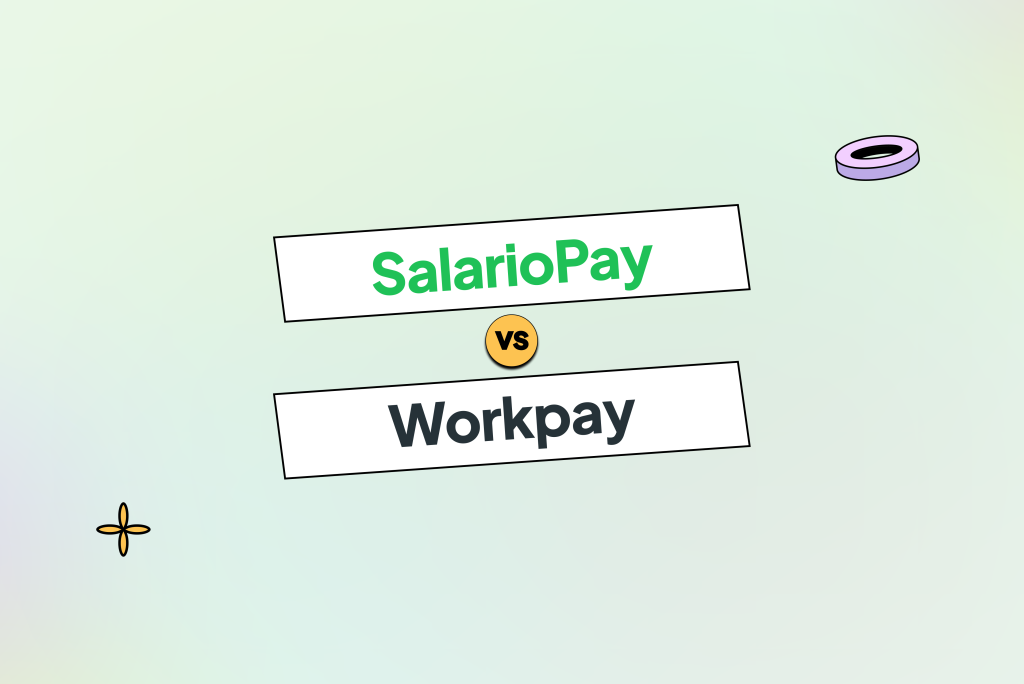
In the evolving landscape of payroll and human resource management, selecting the right platform is crucial for operational efficiency and compliance. A great HR and payroll software option offers many benefits for your company. It matters little if you have 10 employees or 1000; managing timely salary payments and efficient data collection can keep employee morale high and increase productivity. This post pits two excellent software head-to-head. In this SalarioPay vs Workpay comparison, we see two prominent solutions catering to African businesses and how they offer their solutions. By examining their features, pricing structures, and suitability for different business demographics, we want you to make an informed decision for your business needs.
Overview of Workpay
Workpay is a Kenya-based HR and payroll solution tailored for African businesses seeking to streamline employee management across multiple countries. It offers robust tools for payroll processing, leave management, employee records, and compliance, providing an all-in-one platform that’s easy to integrate into existing workflows.
Overview of SalarioPay
SalarioPay is a Nigerian-based payroll management platform designed to streamline payroll processes for small and medium-sized enterprises (SMEs) in Nigeria and West Africa. The platform offers an intuitive interface and essential features that facilitate efficient salary disbursement, benefits administration, and compliance with local labor laws.
SalarioPay vs Workpay: Pricing Structures
Workpay: Tailored for Enterprises
Workpay’s pricing caters to businesses with diverse and complex needs. While specific details require direct consultation with their team, the platform offers two core plans:
- Contractors Plan: $40 per contractor per month, suitable for businesses managing freelancers.
- Employees Plan: $300 per employee per month, ideal for companies hiring full-time staff across Africa.
These plans reflect Workpay’s emphasis on advanced functionality and regional compliance, making it a better fit for larger organizations or those managing cross-border teams.
SalarioPay: Budget-Friendly for SMEs
SalarioPay adopts a transparent and straightforward pricing model designed to be accessible for smaller businesses:
- Free payroll functionality for most transactions conducted within the platform.
- External transactions (employees without a SalarioPay account) cost ₦100 per employee.
- Pension and tax processing is charged at ₦300 per employee.
- Adding admin users incurs a fee of ₦2,000 per month per admin.
- Automated bulk payments for benefits and pensions cost ₦1,500 per transaction.
This pricing structure ensures affordability for businesses with tighter budgets or fewer employees.
SalarioPay vs Workpay: Ease of Use
Workpay’s Advanced Features for Complex Operations
Workpay’s comprehensive feature set comes with a learning curve, particularly for businesses unfamiliar with integrating extensive HR systems. Its breadth of tools is ideal for enterprises with dedicated HR teams capable of leveraging advanced functionality.
SalarioPay’s Intuitive Simplicity
SalarioPay focuses on ease of use, offering a straightforward interface tailored to SMEs. Its simplicity reduces the time spent on onboarding and learning, making it accessible even for businesses with limited technical expertise.
SalarioPay vs Workpay: Compliance and Regional Focus
Workpay: Multi-Country Compliance
Workpay is designed for businesses operating across multiple African countries. It ensures compliance with local tax and labor laws in various regions, making it indispensable for companies with cross-border operations.
SalarioPay: Deep Nigerian Expertise
SalarioPay’s focus on Nigerian labor laws gives it an edge for businesses operating within Nigeria or West Africa. Its updates on statutory requirements ensure seamless compliance, particularly for SMEs with limited legal resources.
SalarioPay vs Workpay: Target Demographics
Workpay’s Ideal Audience
Workpay appeals to larger enterprises, multinational organizations, and businesses looking to expand across Africa. Its features are well-suited for HR teams managing diverse workforces, including contractors, full-time employees, and remote teams.
SalarioPay’s Focus on SMEs
SalarioPay is a go-to solution for small and medium-sized businesses seeking simplicity, affordability, and compliance within Nigeria. It eliminates the complexity of payroll management while remaining budget-friendly, catering to startups, local enterprises, and growing businesses.
Conclusion: Which Platform Is Right for Your Business?
Both Workpay and SalarioPay bring unique strengths to the table, and the choice between them depends on your business size, location, and complexity of operations. Workpay is a powerful solution for larger organizations needing advanced HR capabilities and multi-country compliance. However, its higher cost and complexity may be overkill for smaller businesses.
For SMEs operating in Nigeria or West Africa, SalarioPay emerges as a clear winner. Its simplicity, affordability, and focus on core payroll functions make it an invaluable tool for businesses seeking efficient payroll management without unnecessary frills. SalarioPay’s ability to deliver seamless compliance and salary processing at a fraction of the cost positions it as the ideal choice for startups and growing enterprises looking to streamline their payroll operations without breaking the bank.
